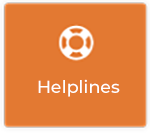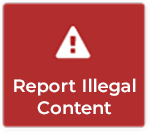UP2US – Lesson 10: Making a stand against bullying (Part 2)

Students will evaluate the effectiveness and quality of their school-wide anti-bullying campaigns.
- +Curriculum Links
- Junior Cycle SPHE Short Course Strand 3:
Anti-bullying: Develop guidelines for promoting collective responses to bullying
Additional learning outcomes:
Strand 4: Dealing with tough times. Highlight coping strategies for managing life’s challenges. - +Resources and Methodologies
- Resources: Student and teacher assessment sheets (Worksheet 10.1 and 10.2).
- Methodologies: Evaluation/scoring of artefacts, Class discussion
- +Learning Outcomes
- Learning outcomes:
- Students will have evaluated their anti-bullying artefacts and the effectiveness of their anti-bullying campaigns.
- Students will have written guidelines for promoting a collective response to bullying based on their experience of running their own anti-bullying campaign.
- The guidelines and artefact and campaign evaluations should form the basis for the students’ reflections as part of the assessment task.
- +Key Skills
- Staying well, Communicating, Being creative, Working with others, Managing information and thinking
- +Activity 10.1 - Scoring the anti-bullying campaigns
- STEP 1: Each group should hand their artefacts and evidence of the success of their campaign to their teacher. Evidence could include statistics for social-media success, videos or
photographs that show people engaging with their campaign. - STEP 2: Artefacts should then be placed around the room, and groups should evaluate each other’s artefacts, using Worksheet 10.1. They should award star ratings for the information, message, visual design, suitability and originality of the concept and should include a short comment about each group’s work. Groups cannot give a score for their own artefacts.
- STEP 3: During this time the teacher should assess the success of the various campaigns in getting a collective response to bullying.
- STEP 1: Each group should hand their artefacts and evidence of the success of their campaign to their teacher. Evidence could include statistics for social-media success, videos or
- +Activity 10.2 - Encouraging a collective response to bullying (15 minutes)
- STEP 1: Having examined each other’s work, and drawing on their experience of running an awareness campaign, each group should devise a list of guidelines that they think would lead to an effective collective response to bullying. Students should consider in particular the strengths and weaknesses of their campaign and what they have learned from their experiences.
- +Activity 10.3 - Beating Bullying (5 minutes)
- STEP 1: Having totted up the scores for the artefacts and combined them with the marks for generating a collective response to bullying, the winning team and campaign should be announced.
- STEP 2: There should then be a short discussion that highlights the strengths of that particular campaign.
- +Activity 10.4 - Optional exhibition activity
- STEP 1: In addition to having students peer-evaluate each other’s artefacts, it might also be a good idea to open the artefact exhibition up to parents and other students within the school. This would help the class to reach a wider audience with their anti-bullying messages and would also help promote a collective response to bullying by people in the community. If using the interactive poster pack, the class might also decide to get visitors to the exhibition involved in creating their own interactive posters with anti-bullying messages. The artefact might also be displayed in a public area to celebrate Safer Internet Day in February.
Assessment: Students’ ability to produce an anti-bullying artefact and to generate a response to bullying will be peer-evaluated in this lesson. The feedback generated in this lesson should then be used by students to inform the evaluation they write for their assessment task.






